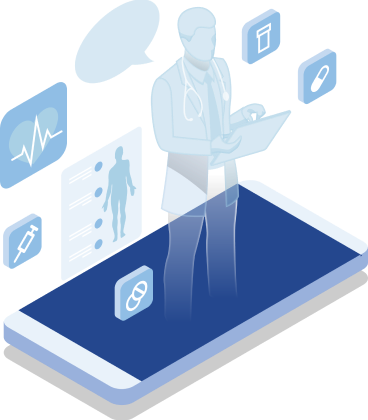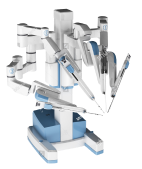Our Medical Experts
Max Healthcare is home to 5000 eminent doctors in the world, most of whom are pioneers in their respective fields. Additionally, they are renowned for developing innovative and revolutionary clinical procedures.
Find a DoctorDelhi/NCR:
MOHALI:
Dehradun:
BATHINDA:
BRAIN ATTACK:

Max Institute of Heart and Vascular Sciences, one of the leading heart hospitals in India, provides a spectrum of treatment for various conditions such as heart defects, congenital heart disease, pulmonary heart failure, coronary artery diseases, and others. Placed among India’s leading cardiac hospitals, we are equipped with some of the best heart specialists in the country, along with state-of-the-art infrastructure, which enable us to offer the best cardiac care programs to our patients. We also offer an alternative treatment for end-stage heart failure patients with procedures like Pacemaker, ACD, CRT, Heart Hole surgeries (ASD, VSD, PDA), Paediatric Cardiac Surgery, and Angioplasty/Angiography.
Equipped with state-of-the-art Cath Labs, operation theatres, and several other heart care technologies, Max Hospitals is positioned to offer all types of cardiac treatments, which partially explains the reason why we are one of the best heart surgery hospitals in India. Here’s a quick overview of the cardiac treatment available at Max Hospitals:
Our non-invasive cardiology services include electrocardiogram (ECG), echocardiogram, stress test, and Holter monitoring. These tests help us diagnose and evaluate heart conditions without any invasive procedures.
Our interventional cardiology services include angioplasty, stent placement, and balloon valvuloplasty. Our experienced interventional cardiologists perform these procedures to improve blood flow to the heart and relieve symptoms of heart disease.
Our electrophysiology services include diagnosis and treatment of cardiac arrhythmias, pacemaker implantation, and cardiac resynchronisation therapy. Our team of electrophysiologists use the latest technology to provide personalised treatment plans.
Our cardiothoracic surgery services include coronary artery bypass grafting, valve repair and replacement, and aortic surgery. Our team of experienced cardiac surgeons use minimally invasive techniques to provide our patients with the best possible outcomes.
Max Healthcare offers a wide range of cardiac services, including preventive cardiology, non-invasive and invasive diagnostic tests, medical management, interventional procedures, and cardiac surgery. This ensures that patients receive complete and effective cardiac care under one roof.
Max Healthcare is equipped with the latest technology and infrastructure for cardiac care, including state-of-the-art cardiac catheterisation laboratories, cardiac surgery suites, and advanced imaging equipment. This enables accurate diagnosis and effective treatment of complex cardiac conditions.
We have a team of highly experienced and skilled cardiologists who are trained in some of the best medical institutions in India and abroad. They have expertise in managing a wide range of cardiac conditions, from common to complex cases.
Patients receive personalised care from the moment they step into the hospital. The medical staff takes the time to understand each patient's unique needs and concerns and develops a customised treatment plan that is tailored to their specific condition.
We place a strong emphasis on patient safety and comfort. The hospital is designed to provide a comfortable and soothing environment for patients, with amenities such as private rooms, round-the-clock nursing care, and a patient-centric approach to care delivery
Max Hospitals, with a team of experienced cardiologists, advanced technology, and a patient-centric approach to care, assures the best possible outcome for any cardiac condition.
Several factors contribute to the development of cardiovascular disease. These factors can be broadly categorised into modifiable and non-modifiable risk factors.
Maintaining a healthy lifestyle by quitting smoking, exercising regularly, managing stress, and controlling diabetes and hypertension can lower the risk of cardiovascular disease. Regular medical checkups at a reputable heart hospital are also crucial for the early detection and management of risk factors.
Early signs of heart disease can vary from person to person, and some individuals may not experience noticeable symptoms at all. However, here are some common early signs and symptoms to be aware of:
If any of these symptoms persists, it is important to reach out to a leading heart hospital known to offer world-class healthcare services.
Most cardiovascular diseases share common signs and symptoms, which leads to confusion among the patients, and instead of visiting a heart hospital, they start self-diagnosis or even self-treatment. It is important that self-treatment may worsen the situation, so it is best to reach out to the best heart hospital in India.
It's essential to seek medical help and get a proper diagnosis for timely treatment to prevent any severe complications. Here are some commonly performed diagnostic tests for cardiovascular diseases:
Once the diagnosis is made, the doctors suggest the most suitable treatment. Here are some of the standard treatment options that are followed for cardiovascular diseases:
People looking for the best cardiology hospital in India can visit our state-of-the-art facility to get the best heart surgery in Delhi at a suitable cost. We also have specialised doctors in heart bypass surgery in India.
We understand that a heart condition can be a stressful and challenging experience for patients and their families. That's why our team is committed to providing compassionate care and support to our patients throughout their journey.
We also prioritise preventive care and lifestyle modification to promote heart health and reduce the risk of heart disease. We offer counselling on diet, exercise, and stress management to help our patients maintain a healthy lifestyle.
To schedule an appointment with one of our heart specialists, please contact us.
Heart disease is a prevalent health issue worldwide, and it remains a leading cause of death. If someone has a reason to believe they may have a heart disease, they should consult a cardiologist at a reputable heart hospital in India.
Heart disease can have far-reaching effects on the body. It often leads to reduced blood flow, potentially causing chest pain (angina), shortness of breath, fatigue, and, in severe cases, heart attacks or heart failure.
Heart surgery, like any surgical procedure, carries some inherent risks. However, advancements in medical technology and the expertise of the medical teams at the best heart surgery hospitals in India, such as MAX Healthcare, have significantly reduced these risks.
Open-heart surgery is typically required for complex cardiac procedures like CABG, heart valve repair, or congenital heart defect corrections. Your cardiologist will determine if this approach is necessary based on your specific condition.
Major risk factors for heart disease include high blood pressure, high cholesterol, smoking, obesity, diabetes, family history, and a sedentary lifestyle. Regular check-ups at a renowned cardiology hospital in India, like MAX Healthcare, can help manage these risks.
Cardiac surgery becomes necessary when medical treatments or less invasive procedures fail to address heart conditions adequately. Surgeons at the best cardiology hospitals in India, like Max Healthcare, perform these procedures to restore or improve heart function.
Just like any other type of surgery, heart surgery can also have complications. These include bleeding, infection, pain, and scarring. However, these risks are closely monitored and minimised by the expert teams at leading cardiac hospitals in India, such as MAX Healthcare.
The length of a hospital stay after heart surgery varies depending on the type of surgery and individual recovery. Patients at MAX Healthcare, a top cardiac hospital in India, receive personalised care plans for their post-operative needs.
Max Healthcare is home to 5000 eminent doctors in the world, most of whom are pioneers in their respective fields. Additionally, they are renowned for developing innovative and revolutionary clinical procedures.
Max Healthcare is home to 5000 eminent doctors in the world, most of whom are pioneers in their respective fields. Additionally, they are renowned for developing innovative and revolutionary clinical procedures.
Find a Doctor

Extra Corporeal Membrane Therapy (ECMO) is a high end rescue therapy for patients suffering from heart and lung failure but are neurologically intact. The technology provides support during high-risk procedures in the cardiac catheterization lab after a serious heart attack. It acts as a bridge for patients awaiting lung transplant. The ECMO helps keep the tissues well oxygenated, thereby making the candidate suitable for a transplant.
Learn MoreThe SPY Elite allowes surgeons to capture, review, print and archive high-quality image sequences of blood flow in vessels and micro-vessels, tissue and organ perfusion within minutes and in real-time during the course of performing a wide variety of surgical procedures.
Learn MoreKanchan Bala: Embracing the journey to motherhood after Uterine Cancer
Treated by Dr. Swasti, Max Multi Speciality Centre, Noida
Jun 2, 2023
Robotic Radical Prostatectomy for Prostate Cancer Treatment
Treated by Dr. Vimal Dassi, Max Multi Speciality Centre, Noida
Aug 11, 2021
Knee Replacement Surgery: Success Story | 70-year-old man Recovers from Knee Deformity, Max Vaishali
Treated by Dr. Nikunj Agrawal, Max Multi Speciality Centre, Noida
Knee Ligament Injury Treatment | Pranjul Success Story | Max Hospital, Vaishali
Treated by Dr. Nikunj Agrawal, Max Multi Speciality Centre, Noida
Patient Mr Boniface Koisani Kishil Kidney Transplant Success - Patient Success Story
Treated by Dr. Vimal Dassi, Max Multi Speciality Centre, Noida
Kanchan Bala: Embracing the journey to motherhood after Uterine Cancer
Treated by Dr. Swasti , Max Multi Speciality Centre, Noida
View all